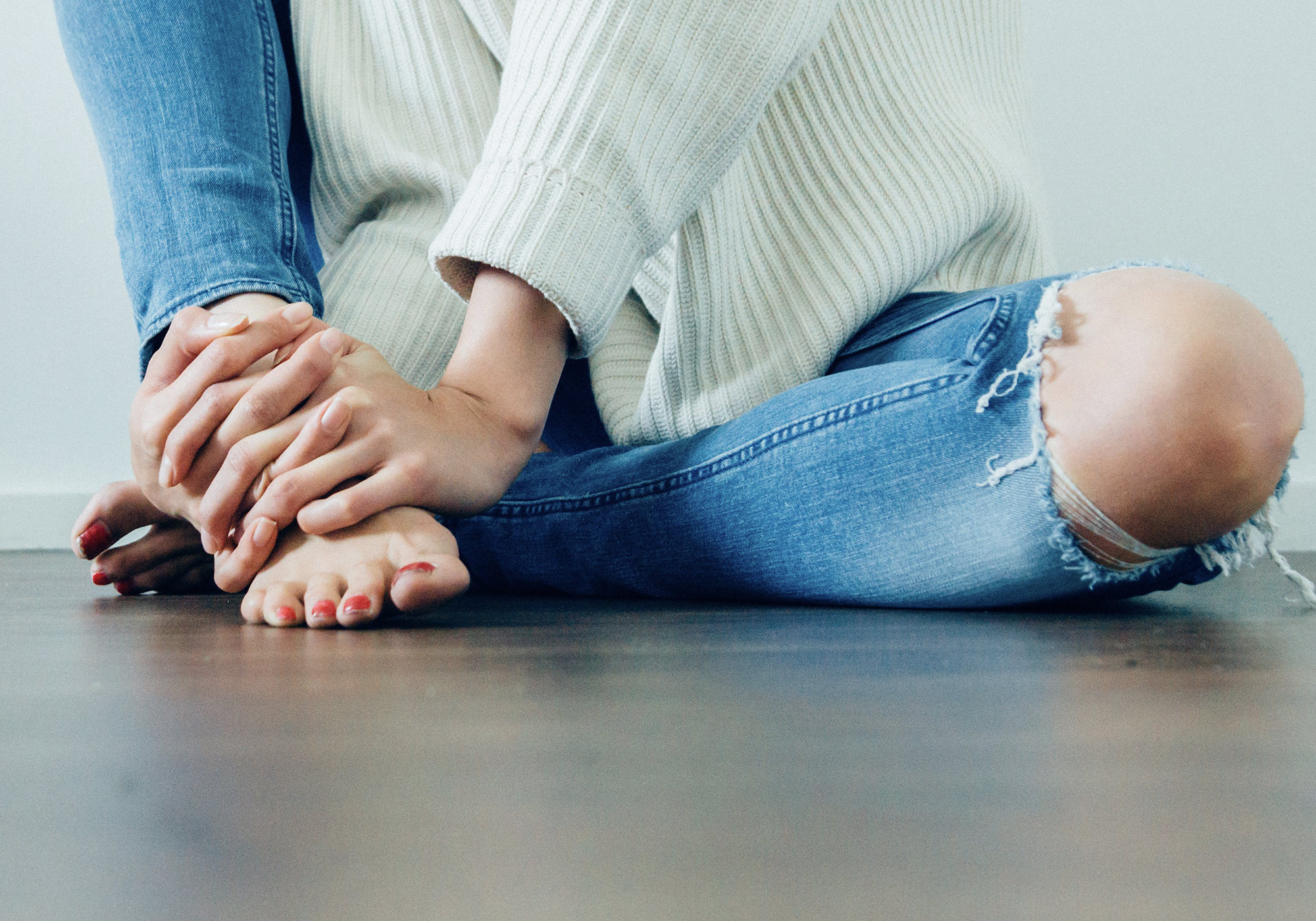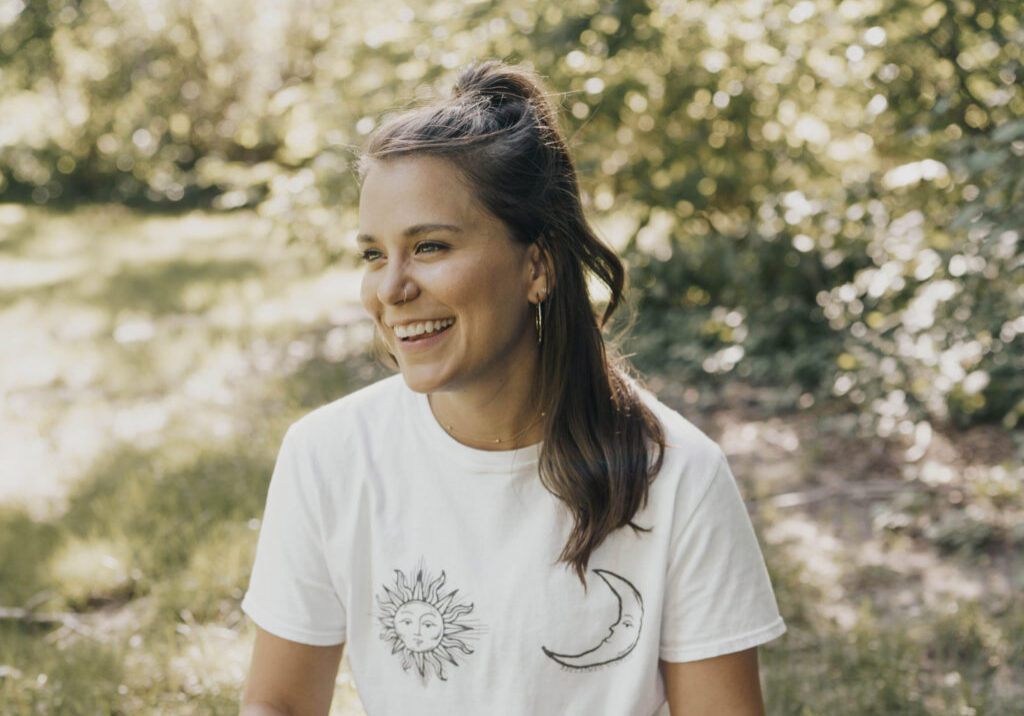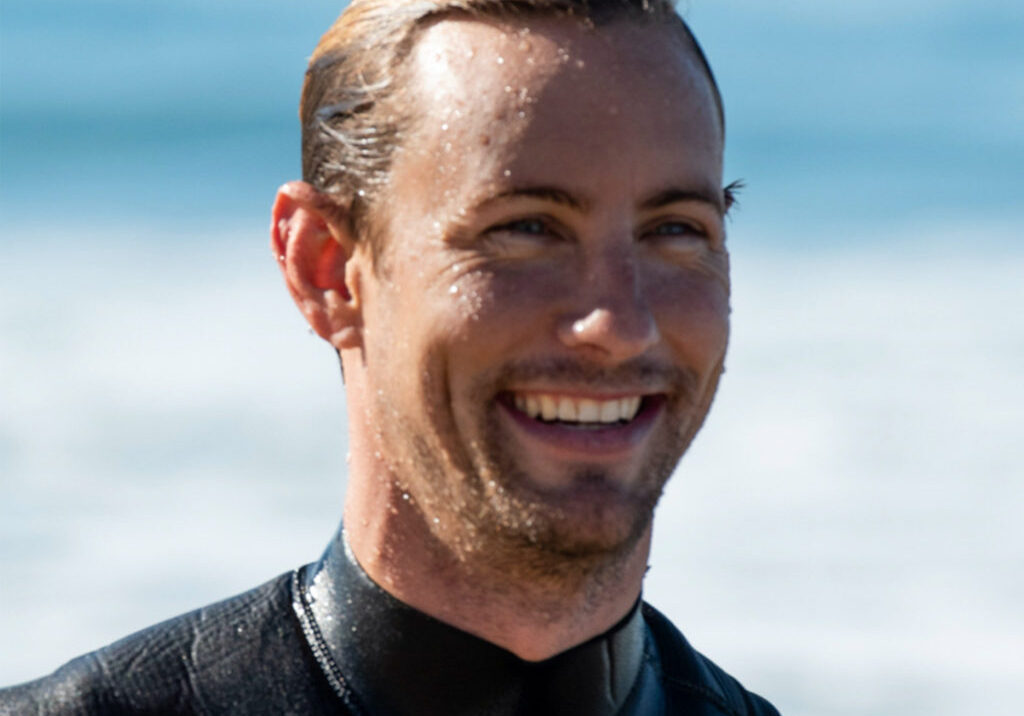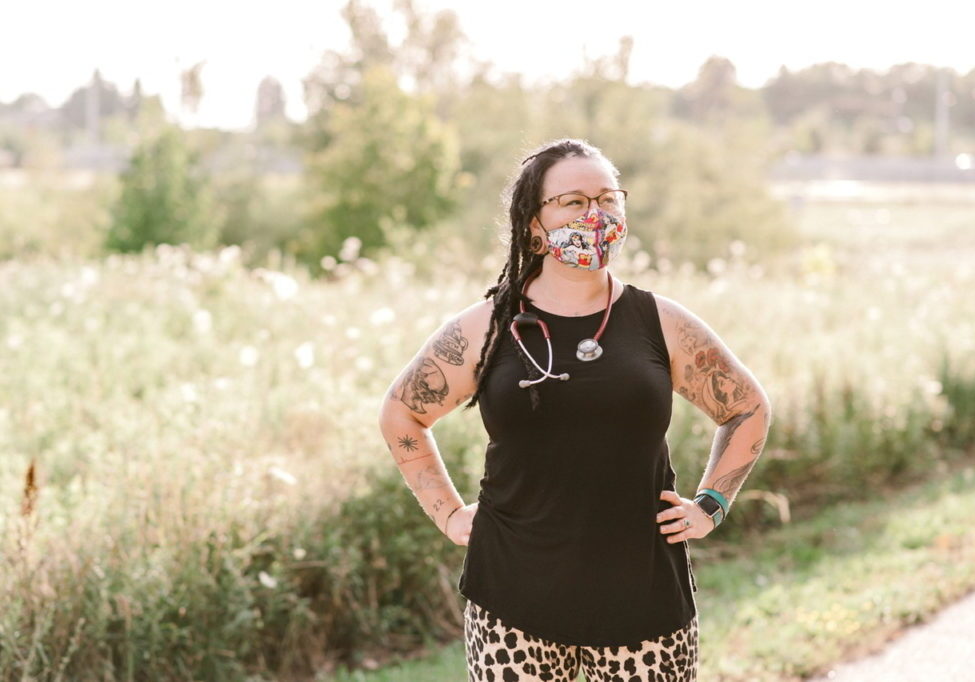The 5 Biggest Changes I Made After Being Diagnosed with MS

I was absolutely devastated when I was told I had Multiple Sclerosis (MS). I was only 27 years old and felt like I was given a life sentence. Initially, I thought my life as I knew it was over, forever. I went through a myriad of emotions – grief, despair, and fear – before I came to the sharp realization that my body was trying to tell me something, and it was time to actually listen.
Yes, being told you have a chronic illness of any kind can elicit a deep fear. At its most basic level, it’s a fear of the unknown. No matter how many statistics you read about the progression of your disease, there is nothing definitive that can predict exactly how your disease will show up for you- and that can be scary. But, if you can find the strength to flip the fear to optimism, you can change everything. If you’re dealing will difficult symptoms, it can be hard to be positive, but if you can make small incremental mindset shifts each day, it will transform your life and health.
Worrying about the future will do nothing productive for your health, but by empowering yourself, educating yourself and taking action, I believe you can vastly improve the outcome of an autoimmune disease, or, really, anything in life! Your mindset is the key.
This article outlines everything I did when I was diagnosed with MS. It’s been four years since my diagnosis, and I continue to live medication-free and symptom-free. While my methods and chosen modalities have evolved over the years, my core practices remain the same.
Important Disclaimer: I am not a medical professional. I am only sharing my personal experience. Please consult your health care provider before making any diet or lifestyle changes.
Having an Autoimmune Disease Means Your Body is Attacking Itself
All autoimmune diseases share the same core issue; our bodies mistake our own healthy cells for foreign 'intruders' and, in an evolutionary attempt to protect us, actually end up damaging vital cells. The collateral damage of this can impact regular function.
I've done a lot of research on this subject and there are some theories that state that an increase in chemical exposure (in the air we breathe and food we eat) is a contributing factor to an increase in autoimmune diseases over the past 50 years. (Source: NCBI)
In addition to this, it has been proven that a Vitamin D deficiency can actually cause autoimmune diseases. Due to the lives many of us lead, we spend most of our time indoors and, due to a deep-seated societal fear of skin cancer, we slather on high SPF sunscreen when we do spend time outdoors. In Canada, we have very limited access to sun exposure for a large part of the year and, consequently, are naturally at a higher risk for developing such diseases. (Source: WEB MD).
Multiple Sclerosis, for one, has actually been labelled 'Canada's Disease' because Canada has the highest incidence of the disease per capita. There is also a slight genetic factor for developing autoimmune issues if you have a familial history of such diseases.
Regardless of the source, it can be traumatic when patients are told they are ill and may never get better. Worse yet, that they will be expected to take medication for the rest of their lives. But rather than seeing it a 'life sentence', it's important to remember that in the most basic way, our bodies are using these outlets to signal to us that something isn't right. And while our symptoms can be treated with Western medicine, it's important to also investigate, to the best of our abilities, the source of the issue and attempt to resolve that issue at the source.
In my experience, the most effective ways to do this is was to limit toxic load, as well as addressing diet and lifestyle factors that 'feed' the disease. I've outlined some of the ways I’ve done this below.
1. I Overhauled my Diet
The day I was diagnosed with MS, I laid in my hospital bed searching for a lifeline and that’s exactly what I found. It came in the form of a Ted Talk on YouTube by Dr. Terry Wahls. This was a game-changer for me. Terry Wahls is doctor and professor of Internal Medicine who was diagnosed with Multiple Sclerosis at age 45. The disease progressed quickly, leading her be unable to walk or sit up and she was soon confined to a tilt-recline wheelchair. She almost had to give up her job before decided to develop and implement a functional medical approach to managing her symptoms, focussing largely on diet changes. Miraculously, she was able to completely reverse her symptoms! Terry Walhs is an inspiration to all of us who are dealing with autoimmune conditions. She is actively researching the connection between diet and disease at the University of Iowa and is committed to producing evidence-based research to change the management of autoimmune disease.
Terry Wahls also wrote a book called the Walhs Protocol, overviewing her approaches. The most basic principles of the Walhs Protocol are to remove gluten and dairy from your diet, while adding nine cups of fruits & vegetables/day to your diet (three cups of leafy greens, three cups of colourful fruits/veg + three cups of sulphur-rich veg), as well as eating high quality grass-fed meat and wild caught fish. The book has a ton of great tips outside of just diet. A great way to get in around 1/2 of your daily fruit/veg intake, is to make a healthy smoothie in the morning.
Here's my favourite take on a Wahls smoothie:
Green Smoothie Recipe
-
- 3 cups organic kale
- 2 cups frozen organic dark coloured fruits
- 1 banana
- 1/2 of one organic cucumber
- 2 tbsp Spiralina
- 2 tbsp chia seeds
- 1/2 cup coconut yogurt
- Water to fill to the top of the contents of the blender
- Optional: 1 tsp of honey
Some other principles of the Wahls diet:
-
- Try to buy organic:
the less chemicals/pesticides/GMOs you consume the better. Organic can get expensive, so if you can't afford to do all organic, try to avoid the 'dirty dozen' (found on this list: EWG). The items on this list are the most sprayed and chemical-ridden fruits/vegetables that are best to invest in organic.
- Try to buy organic:
-
- Grass-fed red meat:
It produces a different kind of fat than grain fed- leaner and easier to metabolize. Chicken is often grain fed but, if you can, try to buy antibiotic-free organic when possible.
- Grass-fed red meat:
-
- Eat wild-caught fish instead of farmed: Most farmed fish (especially salmon) have been fed grain (some DNA tests have sourced chicken parts in the feed)- something fish would never (ever) eat naturally. It's best to eat wild-caught to get the full range of nutrients.
A diet overhaul can be daunting - take the exclusion part in stages if it feels overwhelming to stop everything all at once.
2. I began seeing a Naturopath
When you are diagnosed with an autoimmune disease, you will most likely be referred on to a specialist who will monitor and treat your condition. These doctors (rheumatologists, neurologists, gastroenterologists etc.) are experts on your specific disease and it’s essential that you visit them regularly and keep up with disease monitoring.
Important to note, though, is that your specialist is highly specialized treating the presentation of illness in the one area or function of your body. For example, in my experience, my neurologist (for MS) and my gastroenterologist (for Crohns) haven’t linked my diseases together in any way, other than identifying that they are both autoimmune.
A naturopath (or integrative medicine doctor), on the other hand, may not be able to prescribe pharmaceuticals but can look at your health holistically and recommend natural ways to promote healing and prevent progression of the disease.
I began seeing an amazing Naturopath (Dr. Denise Handscomb of Abaton Integrative Medicine for those local to the Toronto area) after diagnosis and she helped me immensely in terms of helping me to understand the importance of supplementation, especially with my Vitamin D deficiency.
Naturopaths can order blood tests (such as food sensitivity testing), administer vitamin B12 shots, provide IV therapy, recommend supplements and much more!
In addition to (not instead of) regularly visiting your family doctor and specialists, I think it’s essential to see a Naturopath/Integrative Health specialist to support you in your health goals.
3. I Implemented Mindfulness Practices for Health
Your mindset absolutely has an effect on your health. It has been widely proven that stress can cause or exacerbate disease, so finding ways to reduce stress and increase optimism around your health is extremely important.
Meditation
Meditation is a wonderful way to relax and allow your mind to ‘unwind’. There are many ways to meditate- it doesn’t always have to be sitting cross-legged on a pillow. Think outside the box if you don’t think meditation will work for you, you may be surprised!
-
- Guided Meditation (many are available on YouTube for free)
- Guided or Self-Guided Visualization
- Silent Meditation with a focal point (try a candle!)
- Group Meditation
- Walking Meditation
- Breathing Exercises
You can start with as little as two minutes per day and build up to more robust meditation practice. Try it and see how you feel!
Affirmations
Affirmations are important for everyone but particularly important for those who are trying to achieve better health. Start by affirming “I am well” or “I am healthy” out loud 25 or 30 times in the morning and the evening while looking in the mirror. Try to feel the emotions you would if you were already in optimal health. Continue this practice for 21 days and see how you feel after!
Gratitude
If you’re even slightly plugged into mindfulness and spiritual practice, you will have heard a lot about the importance of gratitude. Everyone talks about it for a reason- it works! Feeling grateful for your current circumstances can change your perspective. You can always find something to be grateful for. Start by writing three things in the morning and three things in the evening that you have that you love and are grateful for in terms of your health. There’s always something you can find to be thankful for.
4. I started exercising- Move your body, shift your energy!
Oftentimes, when you are dealing with an autoimmune flare-up, the thought of exercising can be laughable. Whether you’re experiencing fatigue, or you are physically limited in some way, getting up and going to the gym can be extremely difficult. My advice is to start small. Yoga is a wonderful way to begin- you can start by going to a ‘Restorative’ or ‘Yin’ class and work up to a more fast-paced flow. You can also oftentimes access yoga classes on YouTube for free. Yoga exercises your mind, body and soul and often incorporates some type of meditation in the practice. The stretching can also be extremely helpful for mobility and pain.
Aerobic exercise is also an excellent activity to add into your daily routine if you are physically able. Starting with a brisk 20-minute walk is all you need to get your heart rate up!
5. Self-love and boundaries!
When I was diagnosed with MS, I worked at a fast-pace advertising agency in a job a didn’t enjoy, yet I felt compelled to ‘keep up’ with the long hours my team members worked, without ever stopping to ask why. Everything changed after my diagnosis. I no longer had time for anything that wasn’t bringing me joy- let alone things that flat out made me unhappy. I took extended time off and within months I quit my job and my fiancé (now husband) and I moved out of Toronto to a smaller suburb for a slower pace. I didn’t want to work 12-hour days anymore, or pull my laptop out the minute I got home from work to send more emails. This was my first experience setting boundaries for me and it felt incredible.
I also started saying “no” a lot more and claiming my time back to do the things I actually liked doing. The only people who cared when I made this change and set these boundaries were the people that weren’t providing a positive influence in my life anyways. I became more selective about who I spent my precious time with and I was very conscious of the way I felt after I spent time with various groups.
In addition to my relational changes, I also implemented some new self-love practices into my life; I started doing small things that made me feel good; like washing, toning and moisturizing my skin! I also allowed myself ‘indulgences’ like massage, acupuncture and reiki. These practices always make me feel relaxed and taken care of, so I try to book them in whenever possible!
You do you!
While the above practices worked wonders for me, an entirely different plan may work better for you! That’s the beauty of people- we’re all different! I suggest you try out different healthy habits that you think will make sense for you and see how you feel. If it’s not working, just make adjustments.
Always remember that you're full of an incredible strength that has equipped and prepared you to take on this challenge. I’m now at a point where I actually feel grateful for my MS diagnosis. Before it, I knew so little about my body and what was healthy for it. Now I feel like I'm doing everything I can to stay healthy- holistically- rather than just to treat my MS!
Latest posts
Latest Podcasts

Individualizing Self-Care with Ashley Sondergaard
Self-care is not one-size-fits-all. Tune in to hear Ashley Sondergaard’s tips on how you can customize your self-care!
Join the ‘Mind Your Own’ Movement
Subscribe to join the Mind Your Own community and be the first to know about new meditations, blogs, podcast episodes, offerings and many other tips and tools.



